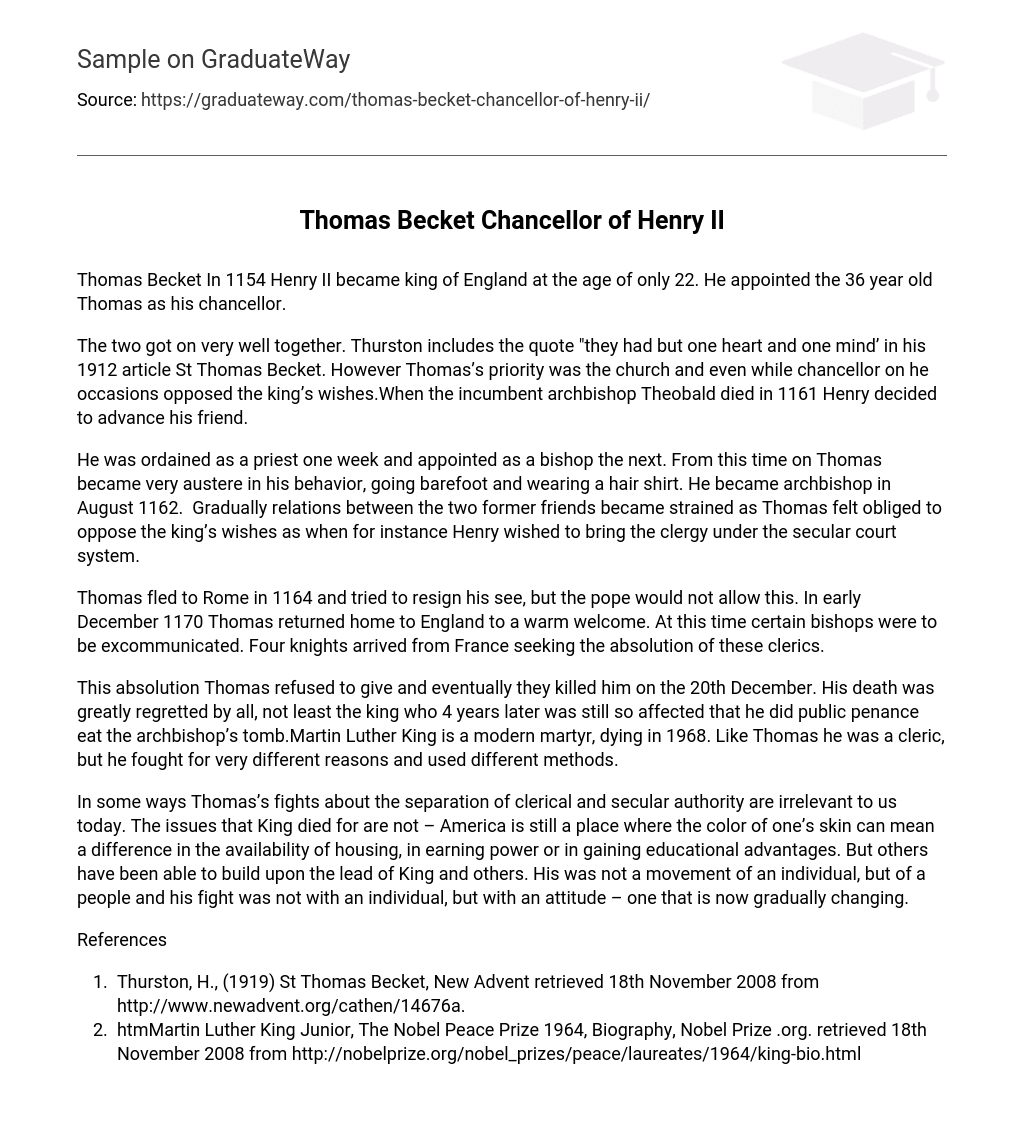Thomas Becket In 1154 Henry II became king of England at the age of only 22. He appointed the 36 year old Thomas as his chancellor.
The two got on very well together. Thurston includes the quote “they had but one heart and one mind’ in his 1912 article St Thomas Becket. However Thomas’s priority was the church and even while chancellor on he occasions opposed the king’s wishes.When the incumbent archbishop Theobald died in 1161 Henry decided to advance his friend.
He was ordained as a priest one week and appointed as a bishop the next. From this time on Thomas became very austere in his behavior, going barefoot and wearing a hair shirt. He became archbishop in August 1162. Gradually relations between the two former friends became strained as Thomas felt obliged to oppose the king’s wishes as when for instance Henry wished to bring the clergy under the secular court system.
Thomas fled to Rome in 1164 and tried to resign his see, but the pope would not allow this. In early December 1170 Thomas returned home to England to a warm welcome. At this time certain bishops were to be excommunicated. Four knights arrived from France seeking the absolution of these clerics.
This absolution Thomas refused to give and eventually they killed him on the 20th December. His death was greatly regretted by all, not least the king who 4 years later was still so affected that he did public penance eat the archbishop’s tomb.Martin Luther King is a modern martyr, dying in 1968. Like Thomas he was a cleric, but he fought for very different reasons and used different methods.
In some ways Thomas’s fights about the separation of clerical and secular authority are irrelevant to us today. The issues that King died for are not – America is still a place where the color of one’s skin can mean a difference in the availability of housing, in earning power or in gaining educational advantages. But others have been able to build upon the lead of King and others. His was not a movement of an individual, but of a people and his fight was not with an individual, but with an attitude – one that is now gradually changing.
References
- Thurston, H., (1919) St Thomas Becket, New Advent retrieved 18th November 2008 from http://www.newadvent.org/cathen/14676a.
- htmMartin Luther King Junior, The Nobel Peace Prize 1964, Biography, Nobel Prize .org. retrieved 18th November 2008 from http://nobelprize.org/nobel_prizes/peace/laureates/1964/king-bio.html





